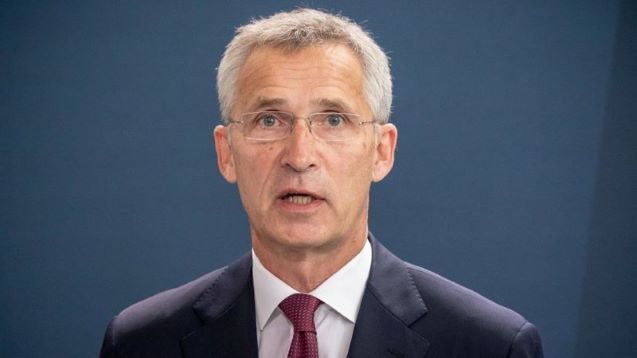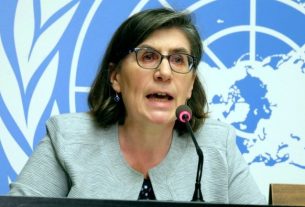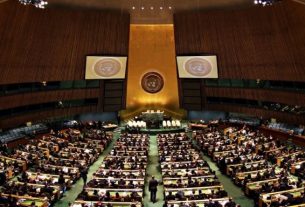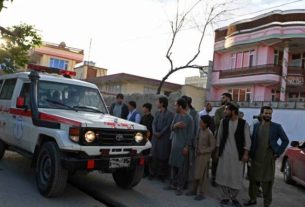“By having too many restrictions we are tying one hand of the Ukrainian armed forces on their back,” said NATO’s Secretary-General.
Jens Stoltenberg has urged NATO states to reconsider limits on sending certain weapons to Ukraine.
“It is for allies to decide on restrictions on the weapons they deliver to Ukraine. That is not a NATO decision, it is a decision made by individual allies,” said the NATO Secretary-General on Monday in Bulgaria.
“My message is that I think the time has come to consider some of these restrictions.”
The issue of sending some forms of military support to Ukraine as it battles the Russian invasion is controversial.
Some states are reluctant to provide Kyiv with longer-range, more powerful arms that could strike targets deep inside Russia, as they fear this could escalate tensions and risks dragging Europe into a wider war.
Others say Ukraine needs all the firepower it can get to fend off a larger, better-armed and resourced opponent. They often point out that Moscow seemingly shows no limitations when attacking Ukraine, hitting civilian and non-military targets across the country.
Speaking on Monday, NATO chief Stoltenberg said some states within the US-military alliance had lifted restrictions on providing specific weapons to Ukraine, though others had not.
He called on those continuing to limit their arms supplies to reconsider their position, citing the “nature of the fighting taking place in Kharkiv.”
“By having too many restrictions we are tying one hand of the Ukrainian armed forces on their back because they are reducing their capability to defend themselves.”
“But again, these are national decisions, not NATO decisions,” he added.
Kharkiv situation adds pressure on Kyiv’s allies
Ukrainian president Volodymyr Zelenskyy warned over the weekend that Russian troops were preparing for intensified offensive action in Kharkiv.
Moscow’s army has seized several villages and settlements in the northern Ukrainian region since May, in one of the most significant ground attacks since its full-scale invasion of Ukraine in 2022.
Russian advances have put renewed pressure on Ukraine’s backers in the West to increase their support, amid fears the tide is turning against Kyiv.
The US, UK and France have provided Ukraine with long-range missiles, though German chancellor Olaf Scholz has ruled out sending his country’s Tauras missiles, despite repeated requests by Kyiv.
Scholz has previously claimed the missile, which can independently locate and destroy a target after being fired, would need to be operated by German teams on the ground in Ukraine – something he considers a red line.__Courtesy EuroNews





